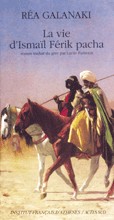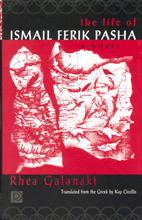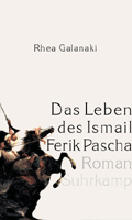 |
|
photo by Johanna Weber |
|
Rhea Galanaki was born in Crete in 1947. She studied history and archaeology at the University of Athens. She has published three novels, which have been through several editions, as well as short stories, essays and poems. The first novel, The Life of Ismail Ferik Pasha, was published in June 1989 and was translated in France, England, Turkey, Bulgaria, The Netherlands, Germany. In 1999 she was short-listed for the 'Aristeion' European Literature Prize. |
 |


